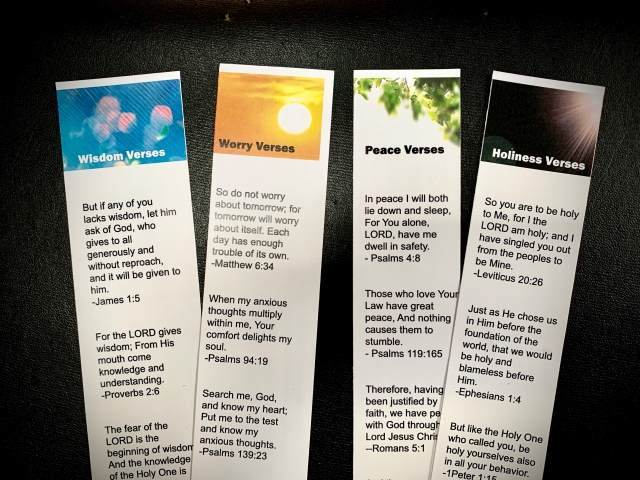| Don't Feed the Fears
|
|
| Thursday, September 08, 2022 | |
Donna Munson considered the black bears that swarmed across her land in southwestern Colorado as her pets. As such, she fed them dog food and kitchen scraps. She would poke the food through a metal fence she built around her porch. According to neighbors, as many as fourteen bears would gather on her property at a time. One of those bears slashed through Donna's fence on a Friday, dragging her body underneath it. The bear then killed and ate Munson. You may never have fed a bear. But I’m pretty sure you’ve done something just as deadly. You’ve fed your fear.
What does it mean to feed your fears? It means to fixate on them. It means to give them a spacious bedroom in your mind allowing them to roam the hallways of your soul freely, all night long. It means to engage in endless What if? and What then? questions. (I’m guilty!). But what if we fed our faith rather than our fears? In Psalm 56:3, David (who knew a few things about fear) wrote, “When I am afraid, I will put my trust in You.” Note the wording here. David says, “When I am afraid.” Meaning fear is normal. It happens to all of us. But trust—the kind that moves us through those fears—that’s a matter of choice. Every time. We’ve trusted Christ to save us from hell and the hideousness of our sins. Can we not also trust Him for other things? Fearful things? Here’s the bottom line: Fears are fed or fought every time you encounter them! The difference is always our decision to trust—or not trust—Christ. Fears are unavoidable. Feeding them is. Don’t feed your fears—feed your faith! |
|
| Are My Shoes on the Right Feet
|
|
| Thursday, September 01, 2022 | |
One of the frustrating things about being a grandparent is the realization you can never convey how much you love your grandkids. And often, that love seems lost on them. Three-year-old Emma doesn’t smile—she glows. And when she giggles, you giggle too. Because you can’t help it. So, we love to remind her and her sister, Ava, how much we love them. Recently, I said, "Emma, I love you so much. I'm really glad to be here with you! It's just so fun going camping together with you." I'm sure I showered her with more comments than that, even. And how did Emma respond? Did she squeeze me with a big hug? No. Did she say, “I love you, too?” Nope. Instead, she asked, “Are my shoes on the right feet?”
A tad bit underwhelming. Not the response I was hoping for. But then again, that’s kids. That’s also big kids like us—who should know better. Our Heavenly Father regularly showers us with loving statements like Jeremiah 31:3, "I have loved you with an everlasting love." And we reciprocate, mumbling something like, "Wish the Bible readings in my daily devotional weren’t so long.” Our Heavenly Father says He loves us so much, in Zephaniah 3:17, He says He will "rejoice over you with singing." But our lives are so noisy that we rarely hear the song. So personal is this love that Isaiah 49:16 proclaims, “I have engraved you on the palms of my hands.” But rarely do we look for His hands. When was the last time we told God we loved Him—not for His gifts or blessings, but for who He is? He's taken great pains to use eloquent language to convey how much He loves us. I'm thinking we can come up with a better response than "Are my shoes on the right feet?"
|
|
| Memorizing Scripture
|
|
| Thursday, August 25, 2022 | |
Are You Memorizing God’s Word? Three reasons to Memorize Scripture
Three common excuses
No, you’re not. Art Rorheim, the founder of AWANA Bible clubs, still memorized Scripture at 99. So can you!
Join the club! That only means it might take a little longer—not that you can’t memorize Scripture.
No. You just haven’t stuck with it! Give the process time—lots of it. Remember— there’s no prize for first place! Steady is more important than fast! Three Tips to Memorize Scripture
Memorizing the Bible can help:
Don't you want this!
To help you get started (or re-started), let me email you a pdf with four free Scripture memory bookmarks you can print out. Each bookmark contains four powerful verses on different themes: Wisdom, Peace, Holiness, and Worry. Just send an email to Jon@jongauger.com, and I'll get the pdf to you. |
|
| Jesus is Alive and Well in Stockholm
|
|
| Thursday, August 18, 2022 | |
You’ve probably heard that Europe is a gospel wasteland. According to a Gallup poll, 18% of Swedes consider themselves atheists and 55% non-religious. The Pew Research Center finds that almost half of Swedes say religion is "not at all important." Indeed, Sweden emerges as one of the least religious countries in the world, alongside France, Japan, Australia, the UK, and the Netherlands. Only about two in ten Swedes say that religion is 'somewhat important' or 'very important' compared with seven in ten Americans. Having just visited Sweden, I’m hardly an expert. But that research does seem to fit the vibe you feel walking the streets of Stockholm. The churches that you see are more historical sights than spiritual lights. More relic than religion. On an afternoon walk, I stopped by the St. Clara Krika (church), built in 1590. It’s just off the main thoroughfare known as Vasagatan street. A golden pulpit rises above the floor, while enormous stained-glass windows flank the front of the edifice. Then there’s the massive pipe organ— as large as some rural towns I’ve been in.
As you peer up at the vaulted ceiling, your gaze wanders from painted mural to painted mural—all scenes from the Bible looking down on you. How were these created? What painter would have had the nerve to mount the monstrous scaffolding that would put your brush in contact with the ceiling? An oak table at the entrance caught my eye with its gospel tract, The Way to God—stacked neatly in piles representing nine different languages. Emboldened, I asked a staff member, “What does this church believe about the Bible?” She replied, “Oh, it is the Word of God!” Cutting to the chase, I asked, "And what does your church teach about how to go to heaven?" “You come to God through Christ. You must be forgiven of your sins.” “But can’t I get to heaven by good works—just being good?” I prodded. “No! You must have Christ!” She was adamant. She was also right. Though the national numbers might not look great, the witness of Jesus Christ is alive and well in Stockholm. Look for the 350-foot spire at St. Clara Church. By the way—have YOU come to God through Christ?
SOURCE: https://sweden.se/life/society/religion-in-sweden |
|
| Life in the Past Lane
|
|
| Thursday, August 11, 2022 | |
Temptation has a way of finding us—no matter what stage of life we're in. For those who've reached middle age and beyond, nostalgia is a beguiling temptress. She whispers that things were (absolutely positively) better in our yesterdays. Owens Lee Pomeroy once quipped, "Nostalgia is like a grammar lesson. You find the present tense but the past perfect." In truth, nostalgia is a seductive liar. It doggedly insists things were way better in the “good old days.” Nostalgia is the file that smooths off the rough edges of yesterday. But at least two dangers come with a life immersed in nostalgia. First, there's the danger that we spend so much time pining away, grasping for what was, we cease to be grateful for what is. Good things are happening today. God is moving and working and blessing today.
Second, there's the danger of living so much in the past that we miss or minimize the present. It's okay to look back. It’s not okay to “live back.” Yesterday can be a nice place to visit, but we dare not stay long. Because if we’re going to move forward, we’ll need to look ahead out the windshield, not behind in the rearview mirror. There's nothing wrong with celebrating God's goodness in the past. In fact, it's biblical to recall great memories, great blessings, and great experiences. But our God is a God of the new. He has plans for this day, this week, this month. Plans for you. Let’s not miss what God is doing today by living life in the “past lane.”
|
|
| Records per page First Prev 14 15 16 17 18 19 20 21 22 23 of 127 Next Last | |
 Jon Gauger Jon Gauger |
|||||||||||||||
| Thursday Thought | |||||||||||||||
|
|
|||||||||||||||
Recent Posts
|




